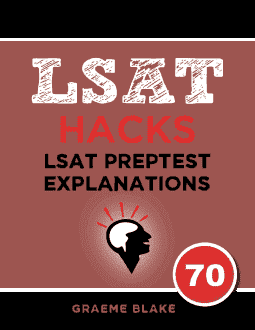QUESTION TEXT: Some heartburn-medication advertisements imply that unrelieved…
QUESTION TYPE: Identify The Conclusion
CONCLUSION: It's false to think that unrelieved heartburn will probably cause esophageal cancer.
REASONING: Only those with Barrett's esophagus have a higher risk of cancer due to heartburn. Only 5% of those who get heartburn have Barrett's esophagus.
ANALYSIS: Any time an author gives their opinion about the truth, it's almost certainly the conclusion.
So when the author says “this is simply false” it means that their conclusion is that they disagree with the first sentence.
This is a good argument, by the way. You might have thought that the author admitted that heartburn can cause cancer. The author did admit this. But their conclusion is that heartburn isn't likely to cause cancer. “Likely” means “51% of the time or more” – it's a synonym for most. So 5% of the time isn't enough to make cancer risk “likely”.
___________
- This is evidence that supports the conclusion that cancer risk isn't likely.
- This is evidence that supports the idea that those with Barrett's esophagus do have an increased risk of cancer.
- CORRECT. The first sentence made the claim that heartburn is likely to cause cancer. The second sentence shows that the author disagrees. When the author presents a claim and disagrees with it, that will be their conclusion.
- This is just a fact that allows the author to make his argument. If advertisements weren't making this claim, the author would have nothing to talk about. But the conclusion is that the author disagrees with these commercials.
- This isn't even true, necessarily. It's possible that TV advertisements are so targeted that the ads are mostly seen by those with Barrett's esophagus. So the ads would be relevant to the viewers. This targeting would be possible with ads on Hulu for example – your web browser knows a lot about you.


Leave a Reply